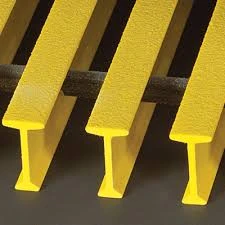loading...
- No. 9, Xingyuan South Street, Dongwaihuan Road, Zaoqiang County, Hengshui, Hebei, China
- admin@zjcomposites.com
- +86 15097380338
- Welcome to visit our website!
Effective Solutions for Treating Hard Water in Residential and Commercial Settings
Hard Water Treatment Understanding Challenges and Solutions
Hard water, characterized by high levels of calcium and magnesium minerals, poses a significant challenge in many households and industries. While hard water is not hazardous to health, it can lead to several inconvenient issues such as scale buildup in pipes and appliances, reduced efficiency of soaps and detergents, and unsightly spots on dishes and glassware. This article delves into the causes and effects of hard water and explores effective treatment methods to mitigate its impact.
Understanding Hard Water
The primary source of hard water is the natural dissolution of minerals from rocks and soil. When water percolates through these geological formations, it leaches out essential minerals, particularly calcium and magnesium ions. The concentration of these minerals defines the hardness of the water, which can be categorized into two types temporary and permanent hardness.
Temporary hardness is usually caused by the presence of bicarbonate minerals that can be removed by boiling the water. When boiled, the bicarbonates convert to insoluble carbonates, which precipitate out of the water. On the other hand, permanent hardness arises from sulfates and chlorides of calcium and magnesium, which remain dissolved in water even after boiling, thus requiring different treatment methods.
Effects of Hard Water
The impacts of hard water extend beyond aesthetic concerns
. Households often face issues such as1. Scale Buildup Hard water leads to limescale deposits in pipes, water heaters, and appliances. Over time, this scale can reduce the efficiency of these systems and significantly increase energy costs, as more energy is needed to heat water through a scale-clogged heater.
2. Reduced Soap Efficiency Hard water reacts with soap to form insoluble precipitates known as soap scum. This reaction diminishes the lathering capability of soaps and detergents, leading to increased usage and additional costs. Washing clothes in hard water can also lead to dingy fabrics and reduced lifespan of garments.
3. Spotting and Staining Hard water leaves mineral deposits on dishes, glassware, and fixtures, resulting in unsightly spots that require extra cleaning efforts and potentially harmful chemicals.
hard water treatment

Treatment Methods
To combat the effects of hard water, various treatment options are available, each with its advantages and disadvantages
1. Water Softeners The most common method for treating hard water is the use of water softeners, which typically employ an ion-exchange process. In this process, calcium and magnesium ions are exchanged for sodium or potassium ions, effectively reducing hardness. While water softeners are efficient, they do require periodic regeneration with salt, which raises concerns about environmental sustainability and sodium consumption.
2. Reverse Osmosis This method employs a semi-permeable membrane to remove not only hardness-causing minerals but also many other contaminants. Reverse osmosis systems can provide high-quality drinking water but tend to be more expensive and may require significant maintenance.
3. Descaling Agents For existing scale buildup, descaling agents can be used to dissolve limescale from appliances and plumbing. While not a permanent solution for hard water, they can provide immediate relief and restore efficiency to affected appliances.
4. Magnetic and Electronic Water Conditioners These devices claim to reduce the effects of hard water without removing the minerals. They use electromagnetic fields to alter the properties of minerals, potentially reducing scale buildup. However, their effectiveness is often debated among experts and varies from case to case.
5. Chemical Treatments In industrial settings, chemical treatments such as phosphates are sometimes used to sequester hardness ions and prevent scale formation. While effective, these chemicals can have environmental implications and require careful management.
Conclusion
Hard water is a common challenge that can lead to significant inconveniences and costs. However, understanding the nature of hard water and exploring the various treatment options can help mitigate its effects. Whether opting for a water softener, reverse osmosis system, or other solutions, addressing the issue of hard water not only improves the quality of life but also preserves the longevity of plumbing and appliances in our homes. Embracing these solutions can lead to more efficient water usage and a lesser environmental impact in the long run.
-
GRP Structures: The Future of Lightweight, High-Performance EngineeringNewsJun.20,2025
-
FRP Water Tank: High-Performance Storage for Corrosive and Clean Water SystemsNewsJun.20,2025
-
FRP Square Tube: The New Industry Standard for Chemical and Structural ApplicationsNewsJun.20,2025
-
FRP Pultruded Profiles: The Ultimate Choice for Lightweight Structural StrengthNewsJun.20,2025
-
FRP Handrails: The Safer, Smarter, and Stronger Choice for Modern InfrastructureNewsJun.20,2025
-
FRP Grating: The Smart Solution for Durable, Lightweight Industrial FlooringNewsJun.20,2025
-
Why Choose a Galvanized Water Tank for Your Storage NeedsNewsMay.21,2025
